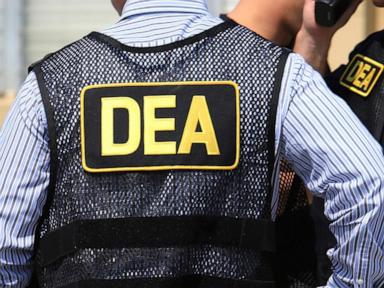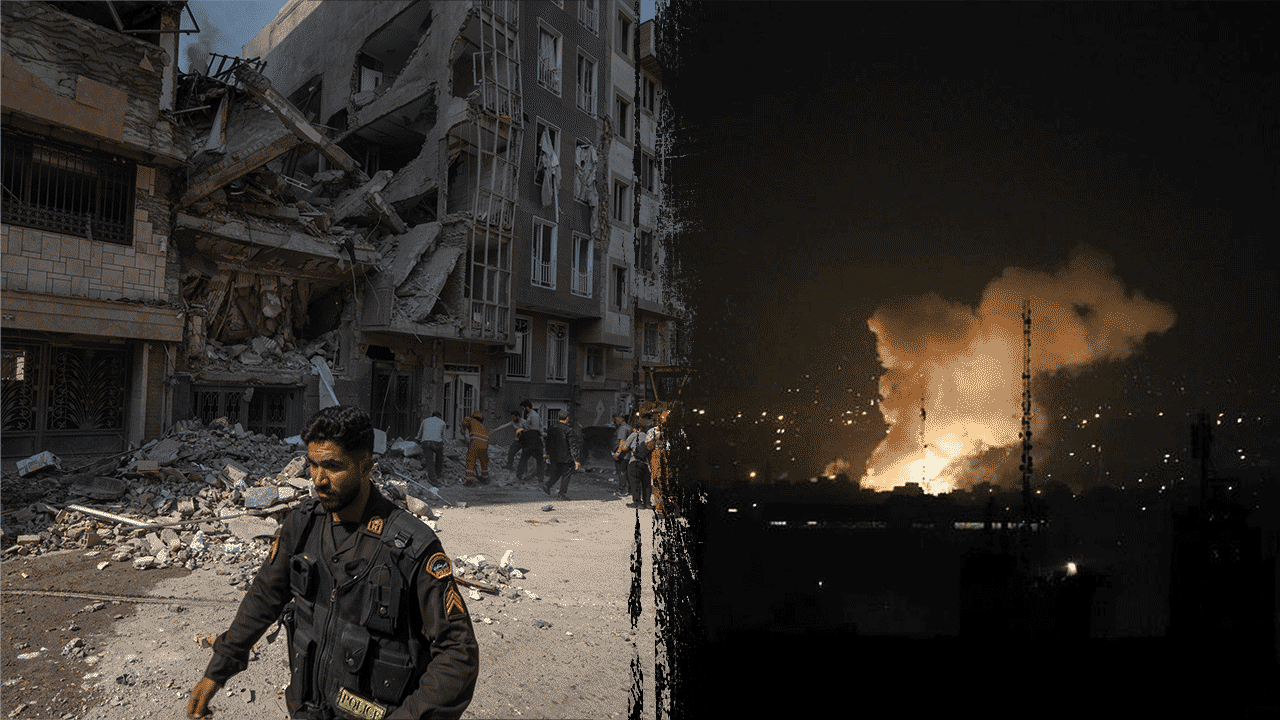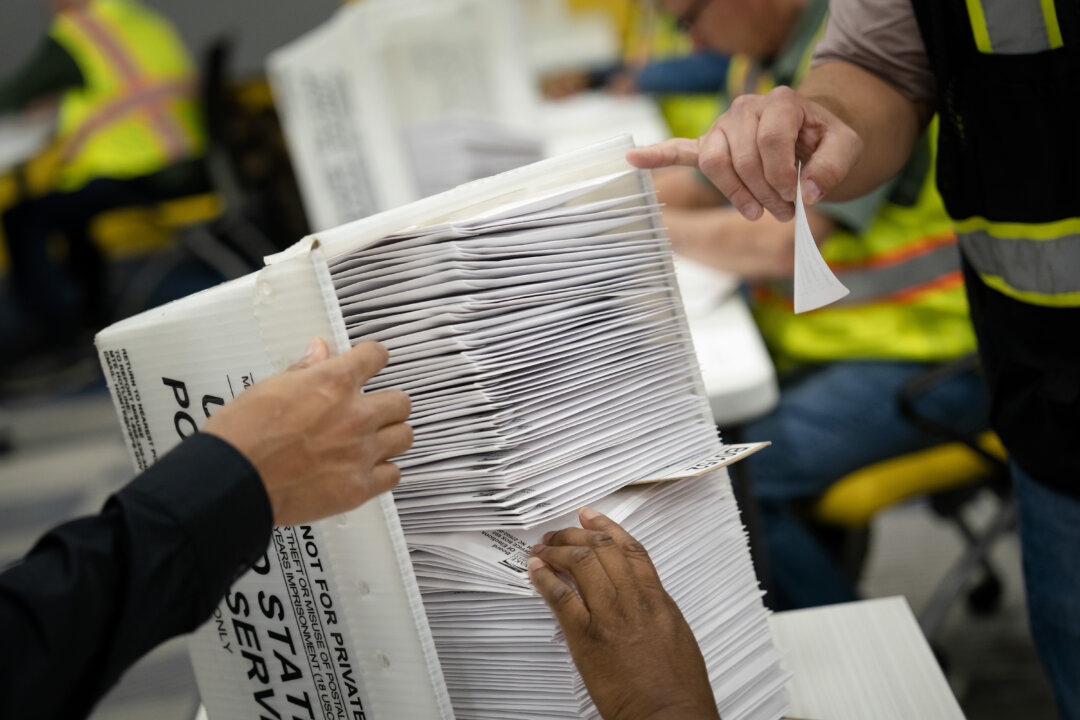Could the U.S. be headed into another war in the Middle East?
Israel and Iran have been trading missile and drone strikes. Supreme Leader Ayatollah Ali Khamenei has refused U.S. calls for surrender. And President Donald Trump hasn’t ruled out providing Israel with bombs needed to destroy Iran’s underground nuclear facilities U.S. military intervention. For reporters seeking clarity, he’s said: “Nobody knows what I'm going to do.”
To see where this conflict might be headed, POLITICO Magazine reached out to a range of experts, from former ambassadors to foreign policy leaders, and asked them to game out scenarios for what might happen if the U.S. carries out an attack on Iran.
Here’s what they said.
‘Deepen Iranian determination to acquire nuclear weapons’
BY RYAN CROCKER
Ryan Crocker is a distinguished chair in diplomacy and security at RAND, and he was a career Foreign Service Officer who served six times as an American ambassador: Afghanistan, Iraq, Pakistan, Syria, Kuwait and Lebanon.
If the U.S. attacks directly, Iran will have two broad choices: (1) return to negotiations prepared to concede retaining any enrichment capability, or (2) retaliate. Retaliation could include blocking the straits of Hormuz, attacks on the energy infrastructure of the Arab Gulf or attacks on U.S. military and diplomatic targets in the region, either directly or via affiliated militias. Iran’s capability to inflict harm on Israel is steadily diminishing. But they do retain a capacity to carry out operations such as these.
Retaliation would invite a massive U.S. response. However, it is unlikely that air power alone will eliminate Iran’s ability to produce nuclear weapons. They have the knowledge, and neither Israel nor the U.S. can kill all the nuclear scientists. An end to Iranian nuclear weapons capability can only come through a verifiable agreement to abandon nuclear enrichment. Perhaps the U.S. force would persuade Iran to agree to such restrictions. If not, it will broaden the conflict and deepen Iranian determination to acquire nuclear weapons, whatever the cost.
‘What matters is the objective and how it is publicly framed’
BY DENNIS ROSS
Ambassador Dennis Ross is the William Davidson distinguished fellow at the Washington Institute for Near East Policy and former U.S. special envoy to the Middle East; his latest book is Statecraft 2.0: What America Needs to Lead in a Multipolar World.
I know the question of what happens if the U.S. bombs Iran, seemingly, is a straightforward question. But it may not be so straightforward: What matters is the objective and how it is publicly framed. Let’s say Trump announces that to ensure that Iran will not have a nuclear weapon option, we have decided to bomb Fordo. This is an enrichment site built into a mountain. It requires a mountain buster, not a bunker buster. Because Israel does not have a bomb like the massive ordinance penetrator — and doesn’t have a plane that could carry it — only the U.S. can destroy it from the air. Iran retaining the Fordo enrichment site would be retaining an important element of its nuclear infrastructure that surely preserves its option of going for the bomb.
If the president said our strike is only about the threshold Iranian nuclear weapons capability and the U.S. will hit no other sites, the war might be contained. If, however, the U.S. decides to bomb much more widely, maybe with a regime-change objective in mind, Iran’s leaders might feel they have little to lose and their best bet is to show they can make us pay a heavy price. Under these circumstances, I could see the Iranians going after the oil facilities of our friends in the region and, perhaps, blockading the Straits of Hormuz — dramatically driving up the price of oil, something the Trump administration does not want.
Soft American targets internationally would also be part of what they would go after. Khamenei’s instinct now is not to act this way because it could trigger a war with the U.S., and he has traditionally seen that as threatening the regime’s survival. But if Trump is thinking about wider and more extensive attacks against Iran, he and those around him will need to think of the options the Iranians have to create pain for us and position our forces to anticipate and counter these contingencies.
‘It’s much easier to start wars than to end them’
BY IAN BREMMER
Ian Bremmer is president and founder of the Eurasia Group.
So far, the Iranian leadership has displayed significant restraint. They’ve focused only on hitting back against Israel (which they’re not very capable of doing) and not taking any steps to disrupt tanker traffic in the Straits of Hormuz, attack energy infrastructure in the Gulf or launch strikes against U.S. military targets in the region.
Might that change if the Americans get directly involved in the war? If it’s just destruction on Fordo, I’d suspect not. After all, the U.S. and Israel still have the ability to launch decapitation strikes against Iran and would be holding that in reserve. But that implies the Iranian leadership remains coordinated and isn’t acting out of desperation. What if rogue military actors inside a badly hit Iranian military leadership decided to take matters into their own hands? That could easily lead to escalation. Or if the supreme leader felt that his control over the military was itself starting to slip? Or even if Israel proves unsatisfied that they’re done after Fordo and wants to start attacking the leadership themselves?
It’s much easier to start wars than to end them.
‘Bombing Fordo will not be the final salvo in this conflict’
BY RAY TAKEYH
Ray Takeyh is a senior fellow at the Council on Foreign Relations.
In the past week, Israel has inflicted considerable damage on Iran’s nuclear program. The one atomic installation that seems to be beyond Israel’s logistical capability is the Fordo plant, buried deep in a mountain outside the shrine city of Qum. Only the United States, with its advanced aircraft and specialized munitions, can destroy this site. The challenge for Trump is to balance his concerns about potentially being drawn into another Middle Eastern conflict with his desire to disarm Iran. His choice is likely to define the trajectory of U.S.-Iran relations for some time to come.
Should America involve itself in Israel’s ongoing campaign, it will confirm the clerical leaders’ suspicions that Washington was the instigator of recent Israeli moves after all. The regime is in no shape to retaliate today. Its military leadership is decimated, its air defenses compromised, and its leaders are in hiding. Any move against American forces or ships will likely trigger a devastating retaliation at a time when Iran can ill afford to expand the zone of conflict.
But the clerical oligarchs have long memories. Once the dust settles, they will resort to tactics that have worked best for them over the years: terrorism and asymmetrical conflict. American embassies, tourists and military bases could be targeted by Iran’s clients while Tehran claims ignorance. Any president witnessing such loss of life will be compelled to respond or face the political consequences of inaction. This could begin a cycle of strikes and counter-strikes. The important point for the Trump administration to recognize is that bombing Fordo will not be the final salvo in this conflict. All this is not to suggest that it should not attack, but that it should do so with eyes wide open.
‘There are major incentives to attack all leadership, all communication links across the country … and Iran’s missiles and military bases’
BY ROBERT A. PAPE
Robert A. Pape is professor of political science at the University of Chicago and author of Bombing to Win: Air Power and Coercion in War.
I expect the nuclear processing facility at Fordo to be hit immediately, not just on day one but during the first hour of U.S. strikes. Natanz likely will be attacked at the same time. This is the most critical target. Without pounding these nuclear facilities hard, there’s little point to any U.S. air attack.
We should also not be surprised by “surprise.” The most likely event is that a much wider set of targets will be struck than the set narrowly associated with Iran’s nuclear program. The U.S. knows that Iran could well respond promptly against U.S. military bases, which are only tens of minutes away from any missiles launched. To limit these and other military responses, there are major incentives to attack all leadership, all communication links across the country (even those used by civilians) and Iran’s missiles and military bases — all in one fell swoop.
Another surprise could be the attempted use of commandos at Fordo and Natanz, both for post-attack reconnaissance and possible placement of munitions to seal entrances to underground shafts. This would be a high-risk mission, but so too is the entire endeavor.
‘There is no military solution to the conflict between Israel and Iran’
BY ROBIN WRIGHT
Robin Wright is a foreign affairs analyst who has written multiple books on the Middle East, including Rock the Casbah: Rage and Rebellion Across the Islamic World.
Ultimately, there is no military solution to the conflict between Israel and Iran. Every conflict needs to include some kind of diplomacy to address the original flashpoints for an enduring outcome that prevents new hostilities. Whether or not the U.S. engages militarily, Washington is the only party capable of brokering a deal that defuses a conflict between Israel and Iran, two countries that have conducted a shadow war for decades now playing out in stunning missile barrages. So the U.S. is now a player, whether militarily or diplomatically.
One haunting danger is that neither the U.S. nor Israel has specifically detailed what their longer-term intentions are on Iran — what the end game is after the shooting stops. Trump has called for “unconditional surrender.” Does that mean a total surrender of a nuclear program and ballistic missiles too? Or is Trump talking about some form of political surrender? On the day he launched airstrikes on Iran, Prime Minister Benjamin Netanyahu made an appeal to the Iranian public. He said Israel had cleared the path for Iranians to rise up against theocratic rule in Tehran. “Regime change” was implicit. The two men have reportedly discussed whether to kill Khamenei, who has been in power since 1989. Trump said he was opposed — for now — even though he noted Wednesday afternoon that the theocracy could indeed fall as a result of the current war.
Iran will come out significantly weaker from this war, no doubt. But it is more than twice the size of Texas — in contrast to Gaza, which is the size of greater Philadelphia. Israel is still at war there after 20 months of warfare. Iran is also twice the size of Afghanistan, where the U.S. fought its longest war. And it is three times the size of Iraq, where the U.S. fought an eight-year war which, as an unintended consequence, spawned ISIS, an extremist movement that forced the U.S. to reengage in Iraq. Troops are still there. There are so many recent precedents — and lessons — that should be heeded in navigating what Washington does in the hours, days and weeks ahead.
‘Tehran will ultimately pick the path of diplomacy’
BY ARASH AZIZI
Arash Azizi is a contributing writer at The Atlantic and author of What Iranians Want: Women, Life, Freedom.
Iran will be faced with the choice of either attempting to expand the conflict by hitting at U.S. targets in the region decisively or accepting a deal via negotiations, effectively a form of ‘surrender’ as Trump understands it.
It is hard to predict, but whether the U.S. does or doesn’t bomb Iran, I think Tehran will ultimately pick the path of diplomacy and a deal. This will fit both with the regime’s rationale of wanting to preserve itself and the overwhelming sentiments on the Iranian street. But it is also possible that Iran might hold out longer, hoping that it could exhaust Trump and Israel. It could leave the NPT and go toward testing a nuclear device. This will be a dangerous path, especially if it ends up goading Trump to enter the Middle East more decisively.
.png)














 English (US)
English (US)